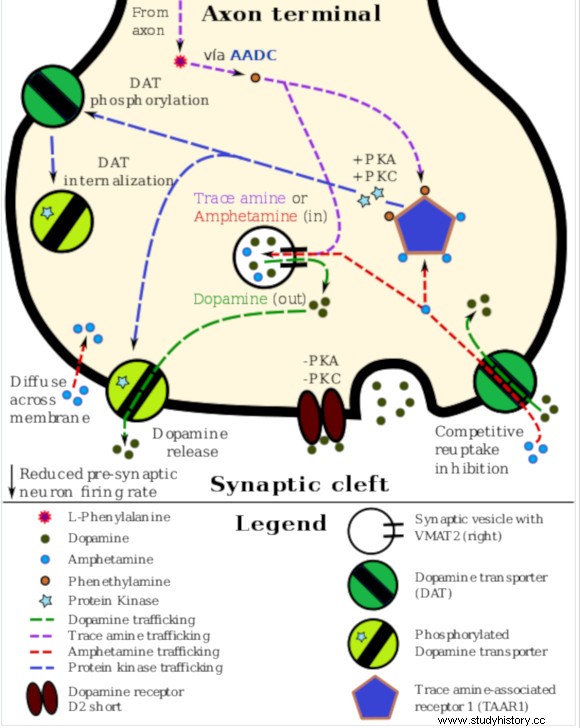If someone believes that the use of stimulant drugs to increase performance is the exclusive domain of sport is mistaken, as will anyone who thinks that methamphetamine It doesn't go beyond the world Walter White plunges into in Breaking Bad . Both things come together when it comes to reinforcing the value of the soldier, and here too the thing is not limited to those dark cases in Africa. We already had a good example decades ago, during the Second World War .
In 1940, a twenty-year-old German soldier named Heinrich Böll included in several letters written to his parents and siblings a request for them to send him a curious shipment. He would say: «It is difficult to be here and I hope you understand that I can only talk to you every two or four days. I am writing to you today to ask for some Pervitin» . Böll, who would be the first German to win the Nobel Prize for Literature after the conflict (in 1972), was requesting a drug of legal use that had become very popular among the troops, especially in the first phase of the war, in the invasions of Poland and France.
That first semester, when the concept of Blitzrieg required speed and determination, the Wehrmacht supplied methamphetamine to help the men stay awake and euphoric, according to a recently published book titled Der total rausch . Actually its author, Norman Ohler , collects and updates something that was already known. Even when Hitler recommended abstaining from alcohol and tobacco (despite the fact that Eukodal, a narcotic analgesic more powerful than morphine, was systematically injected), the use of drugs by German soldiers was not prohibited by the commands if they had the corresponding authorization. medical prescription.
In fact, the official drug law of the Third Reich was inherited from the Weimar Republic (1919-1933) and many developed a certain addiction to cocaine and morphine. The latter had caused that, in 1925, Herman Goering himself had to enter a psychiatric hospital in Sweden to detoxify. In the specific case of Pervitin , created by the Temmler pharmaceutical company, had been marketed since 1938 in pill form and was designed to combat fatigue and stress. It was methamphetamine and therefore caused an adrenaline rush and self-confidence, while reducing fatigue, pain, hunger and sleep.
But nobody considered it a drug from the negative point of view, but only something comparable to the consumption of coffee. That's why it was quite successful among the general population and attracted the attention of a military doctor named Otto Ranke , director of the Defense Institute for General Physiology and the Academy of Military Medicine in Berlin. In 1939, Ranke tested Pervitin in a hundred university students and the good results led him to propose its application in soldiers . The result of the Polish campaign would support its use. It was popularly known among aviators as Stuka-Tabletten or Hermann-Göring-Pillen .

Thus, 35 million tablets were supplied of Pervitin and a sister product called Isophan, which was manufactured by Knoll Pharmaceuticals, counting each pill with 3 milligrams of active substance. They were distributed under the acronym OBM as stimulants, although recommending a dose of one to two tablets only when it is necessary to stay awake. The OBM displaced another type of drug towards those that had the worst regard and that had proven to be addictive, such as cocaine, opium or morphine.
Instead, Pervitin seemed like a good and not harmful drug.; some compared it to Coca-Cola and it was added to chocolate. The product demonstrated its efficacy in extreme situations, like once in 1942 on the Eastern Front where, at 30 degrees below zero and persecuted by the Red Army, half a thousand exhausted Germans, lying on the snow awaiting death, saved their lives by receiving their pills and recovering both strength and spirit. Even the controls took it; Norman Ohler assures that Rommel he did it as if it were “daily bread” . And it wasn't a German exclusive:the Japanese and the Allies used it too.
After the war, Pervitin continued to be consumed, either by prescription in pharmacies or on the black market, as an antidepressant. and to reduce the feeling of hunger, just like medical students also used it to stay awake and study. In the seventies it was banned and declared illegal.
